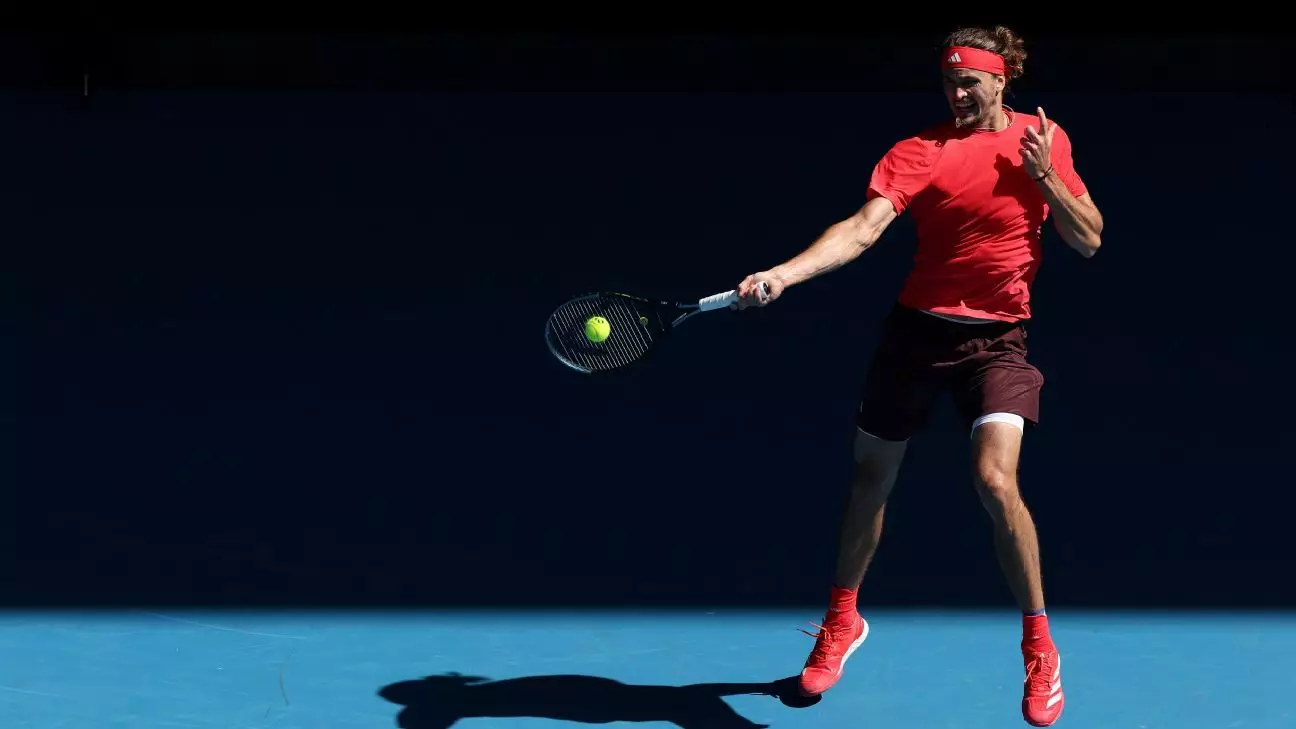In what turned out to be a gripping encounter, Alexander Zverev fought his way to the Australian Open semifinals after defeating 12th-seeded Tommy Paul with a scoreline of 7-6 (1), 7-6 (0), 2-6, 6-1. This victory marked Zverev’s third semifinal appearance in Melbourne, and the match was a rollercoaster of emotions characterized by tense moments and unexpected interruptions. Zverev’s performance under pressure was commendable, particularly in the first two sets where he found himself on the brink of defeat but managed to hold his ground during crucial tiebreaks.
Despite his win, Zverev’s admission of being “outplayed” by Paul during the early stages was telling. His ability to save set points in both the first and second sets showcased his resilience, but it’s also an indicator of inconsistency that he must address as he progresses deeper into the tournament. The fact that he required two match points on his serve to secure victory and ultimately closed the match with an ace accentuates both his struggle and determination. This duality raises questions about his form going forward, particularly against the formidable opponents awaiting him in the next round.
The Battle of Generations
Looking ahead, the semifinal showdown looms large for Zverev, as he prepares to face either Novak Djokovic or Carlos Alcaraz—a match Zverev referred to as a “clash of generations.” Djokovic, with a record 10 Australian Open titles, epitomizes experience and skill, while Alcaraz, at just 21, represents the youthful vigor that has been invigorating the tennis world. Zverev acknowledged the significance of this matchup, highlighting the contrasting styles and careers of both players, which will only add more excitement and anticipation for the spectators.
Interestingly, Zverev’s journey to victory was not devoid of distractions; a bird’s feather falling into his line of sight during a critical moment caused an unexpected halt in play. This incident, coupled with a spectator’s outburst during a crucial point, contributed to Zverev’s mounting frustration. He was visibly agitated, and his reaction earned him a warning from the chair umpire, highlighting the psychological challenges athletes often face during high-stakes matches. This ability to maintain composure under such distractions is a vital skill, one that Zverev will need to refine moving forward.
Reflecting on the Path Ahead
Zverev’s candid reflection on his performance sheds light on the mental aspect of tennis that often gets overshadowed by physical prowess. His statement about his own play being less than stellar while still managing to progress demonstrates the unpredictable nature of sports—a reminder that perseverance can sometimes outweigh skill. As he prepares for his upcoming match, Zverev will need to draw on both his physical strength and mental fortitude. The pressure intensifies as he finds himself on the cusp of a significant milestone; only time will tell if he can rise to the occasion and fulfill his potential in this year’s Australian Open.


Leave a Reply